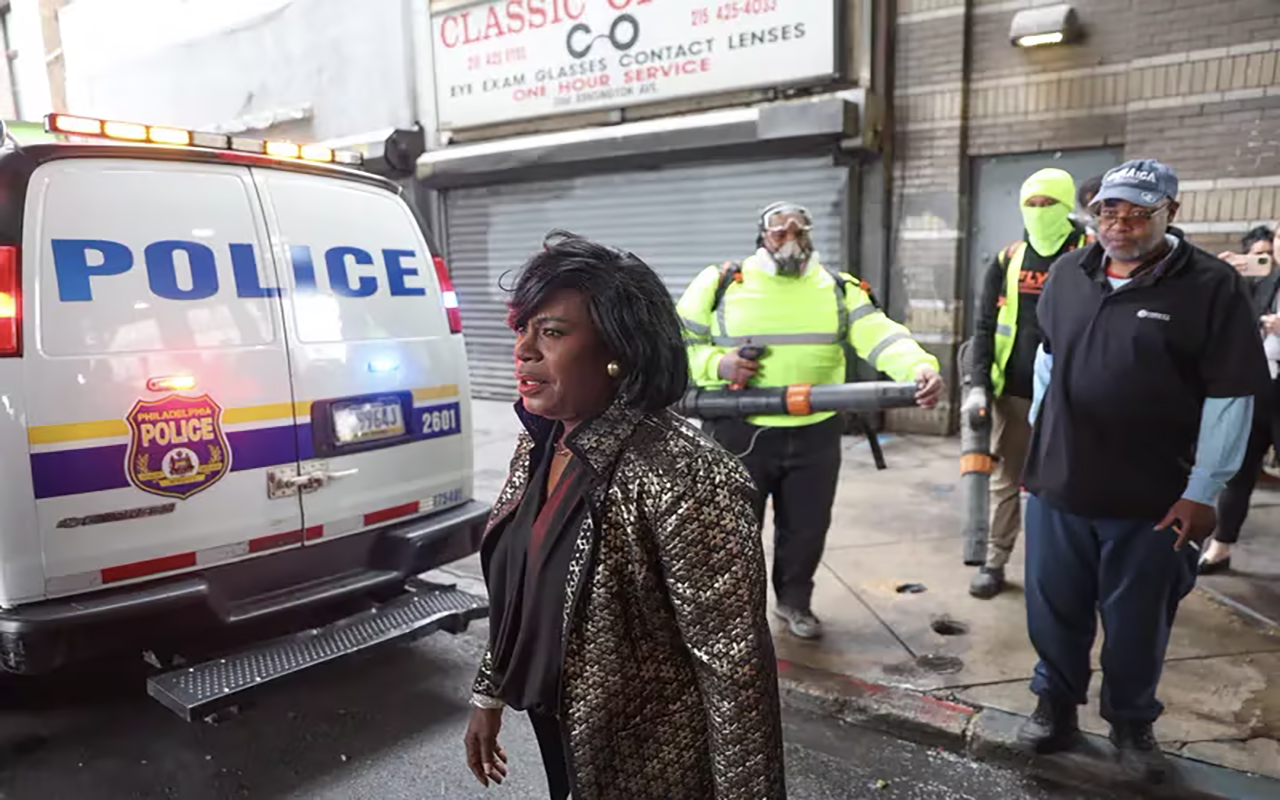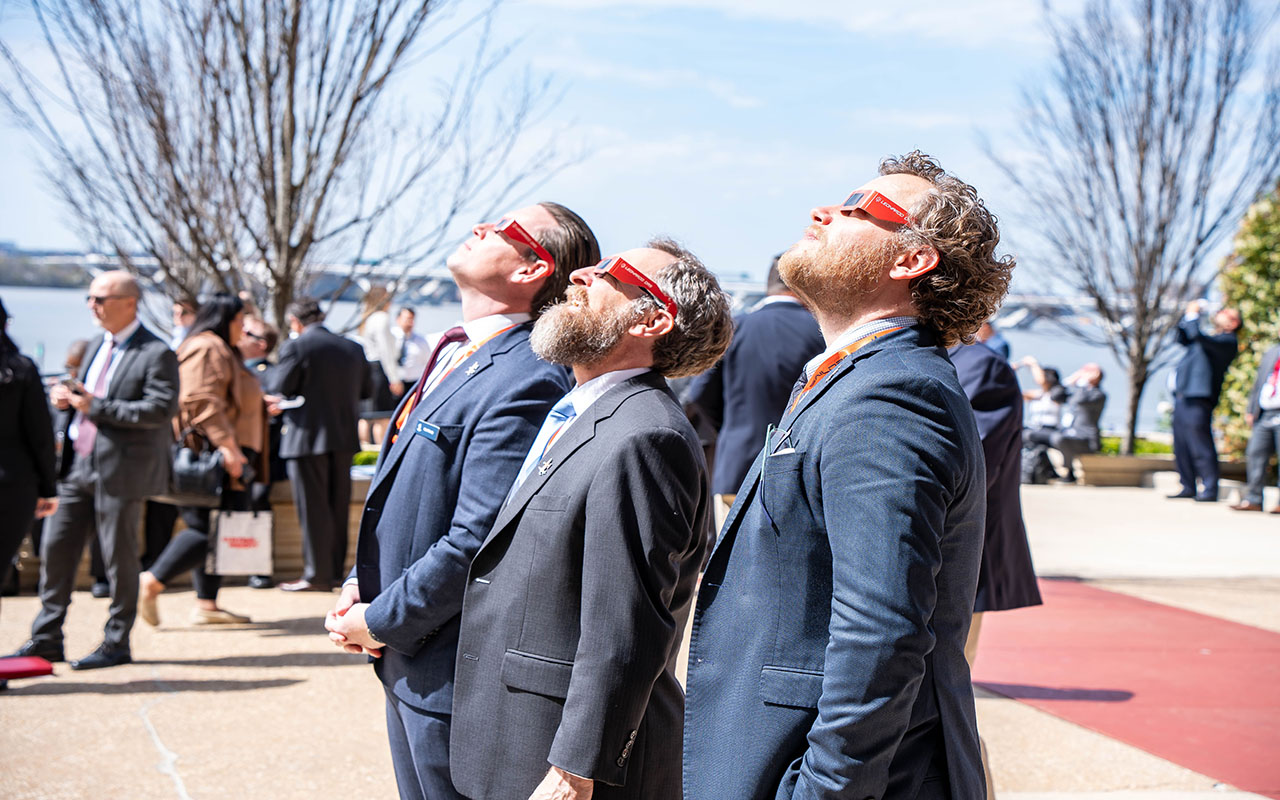Philadelphia will continue to deploy field workers and “doesn’t anticipate” interruptions for City services
Philadelphia officials issued ample directions for the residents. Its guidance for workers is muggy.
Philadelphia officials had swift, responsive guidance for the worsening levels of air quality that prompted a Code Red alert Wednesday morning, June 7. By noon, Philly residents had at their disposal a generous share of suggestions for remaining safe while a sepia-toned plume blurred the skyline. The same can’t be said for City Hall’s workforce.
Collar workers for the City are expected to continue to perform routine duties, and “there are no anticipated disruptions to City services at this time,” a City Hall spokesperson told AL DÍA News in a written statement Wednesday.
When Philadelphia caught wind of the Canada wildfires that contributed to the rapidly deteriorating Air Quality Index scale, a Health Department deputy commissioner overseeing air management made proactive recommendations within their department to temporarily keep field workers off the ground, said David Wilson, President of District Council 47 Local 2187, one the union chapters representing City Hall’s workforce.
The City employs a constellation of field crews, anywhere from sanitation workers, park leaders, traveling social workers, parking authority staff, engineers, technicians, surveyors. All of whom were given global guidance on Wednesday.
At Wilson’s advisory, the deputy commissioner made a recommendation to Health Commissioner Cheryl Bettigole, who, in turn, referred them to the Managing Director’s Office — where it was dead on arrival.
AL DÍA reached out to the Health Department and the Mayor's office for comment, but did not hear back before publication. The City’s original statement did not say an alternative guidance had been floated to the Managing Director’s Office.
Wilson said the Managing Director’s Office opted to pursue regular guidance, recommending that workers follow the guidelines issued by the Philadelphia Department of Public Health wherever applicable — wearing Personal Protective Equipment like high-quality masks and avoiding areas of high congestion — all except the foremost, being outdoors.
“Safety Officers across [sic.] City departments were informed that the U.S. EPA had moved the Air Quality Index for the City of Philadelphia into the unhealthy range (Code Red) earlier today,” the spokesperson said, “urging all residents including departments and employees to follow the Health Department's recommendations, including that any staff working outside wear a high-quality mask.”
Indeed, the City received notice of worsening AQI levels, prompting officials to issue rapid guidance that upstaged a previous response to the water crisis in March from the administration — one that took days to unfold.
The AQI scale, according to the Pennsylvania Department of Environmental Protection, monitors major air pollutants, such as the particular matter feeding the thick plume currently overtaking Philly neighborhoods.
As soon as the Air Quality forecast predicts a Code Orange or higher, state officials will make an Air Quality Action Day declaration to warn high-risk populations of worsening conditions.
Wednesday morning, city officials declared a Code Red, meaning “the air is unhealthy to breathe, and some members of the general public may experience health effects. Members of sensitive groups may experience more serious health effects.”
The spokesperson said workers “are normally briefed on current conditions before their shifts,” telling AL DÍA no modifications were made to account for the day’s events.
RELATED CONTENT
“No schedules have been modified, the City maintains emergency procedures for our workers for these instances, as needed.”
Aside from the run-of-the-mill recommendations, and against the advice of the union president, it was business as usual for field workers. The Union’s Health and Safety Director, in tandem with the Managing Director’s Office, “were just sticking with the belief that they didn't feel the need for a city-wide directive of that nature to be passed out,” Wilson said.
“Rather, they stuck with the directors around drinking plenty of water, you know, working indoors, if you have the capability to do so,” said Wilson.
City workers weren’t proposed auxiliary accommodations, given the City’s advisory, and would need to cash in accrued time to leave work, the spokesperson said.
“Employees can use available leave time if they are not able to come into work.”
Union contracts, Wilson said, insure employees in the event that their health and safety could be compromised under certain working conditions, “and we've had departments respond appropriately once the language was exercised.”
And while there have been no reports of compromised worker safety on the ground, “it saddens me that as an employer, the city of Philadelphia still doesn't prioritize the safety of my members,” Wilson said.
“It's the city workers that really ensure that the city continues to move. To operate. And when you do not prioritize the safety of those workers, it's heartbreaking. And it saddens me that they wouldn't even listen to their own health commissioner's recommendations,” he continued
Wilson said no additional protective equipment besides the City’s stockpile had been provided.











LEAVE A COMMENT:
Join the discussion! Leave a comment.